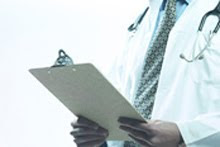
I recieved an email this week and it reminded me not only of the responsibility and joy of being a mother, but the tremendous amount of respect that I have for my own mother. It is a blessing to see your mother enjoy not only her grandchilden, but her great grandchildren, as well. In our culture,the elderly are not always honored as they should be. Please take time today to honor your mother by telling her you love her and spending time with her. Often times, time is the best gift we can give to our mothers. If your mother has passed away, take time to honor her memory today. Please read this interesting viewpoint of what it is to be a mother as you think about your own.
Somebody said it takes about six weeks to get back
to normal after you've had a baby..... somebody
doesn't know that once you're a mother, 'normal' is history.
* * *
Somebody said you learn how to be a mother by
instinct ... somebody never took a three-year-old shopping.
* * *
Somebody said being a mother is boring....
somebody never rode in a car driven by a teenager with a driver's permit.
Somebody said if you're a'good' mother,
your child will 'turn out good'....
somebody thinks a child comes with directions and a guarantee.
* * *
Somebody said you don't need an education to be a mother....
somebody never helped a fourth grader with his math.
* * *
Somebody said you can't love the second child as
much as you love the first ....
somebody doesn't have two children.
* * *
Somebody said the hardest part of being a mother
is labor and delivery....
somebody never watched her 'baby' get on the bus
for the first day of kindergarten ...
or on a plane headed for military 'boot camp.'
* * *
Somebody said a mother can stop worrying after her
child gets married....somebody doesn't know that
marriage adds a new son or daughter-in-law to a
mother's heartstrings.
* * *
Somebody said a mother's job is done when
her last child leaves home.....
somebody never had grandchildren.
* * *
Somebody said your mother knows you love her, so
you don't need to tell her....
somebody isn't a mother.
Somebody said it takes about six weeks to get back
to normal after you've had a baby..... somebody
doesn't know that once you're a mother, 'normal' is history.
* * *
Somebody said you learn how to be a mother by
instinct ... somebody never took a three-year-old shopping.
* * *
Somebody said being a mother is boring....
somebody never rode in a car driven by a teenager with a driver's permit.
Somebody said if you're a'good' mother,
your child will 'turn out good'....
somebody thinks a child comes with directions and a guarantee.
* * *
Somebody said you don't need an education to be a mother....
somebody never helped a fourth grader with his math.
* * *
Somebody said you can't love the second child as
much as you love the first ....
somebody doesn't have two children.
* * *
Somebody said the hardest part of being a mother
is labor and delivery....
somebody never watched her 'baby' get on the bus
for the first day of kindergarten ...
or on a plane headed for military 'boot camp.'
* * *
Somebody said a mother can stop worrying after her
child gets married....somebody doesn't know that
marriage adds a new son or daughter-in-law to a
mother's heartstrings.
* * *
Somebody said a mother's job is done when
her last child leaves home.....
somebody never had grandchildren.
* * *
Somebody said your mother knows you love her, so
you don't need to tell her....
somebody isn't a mother.






